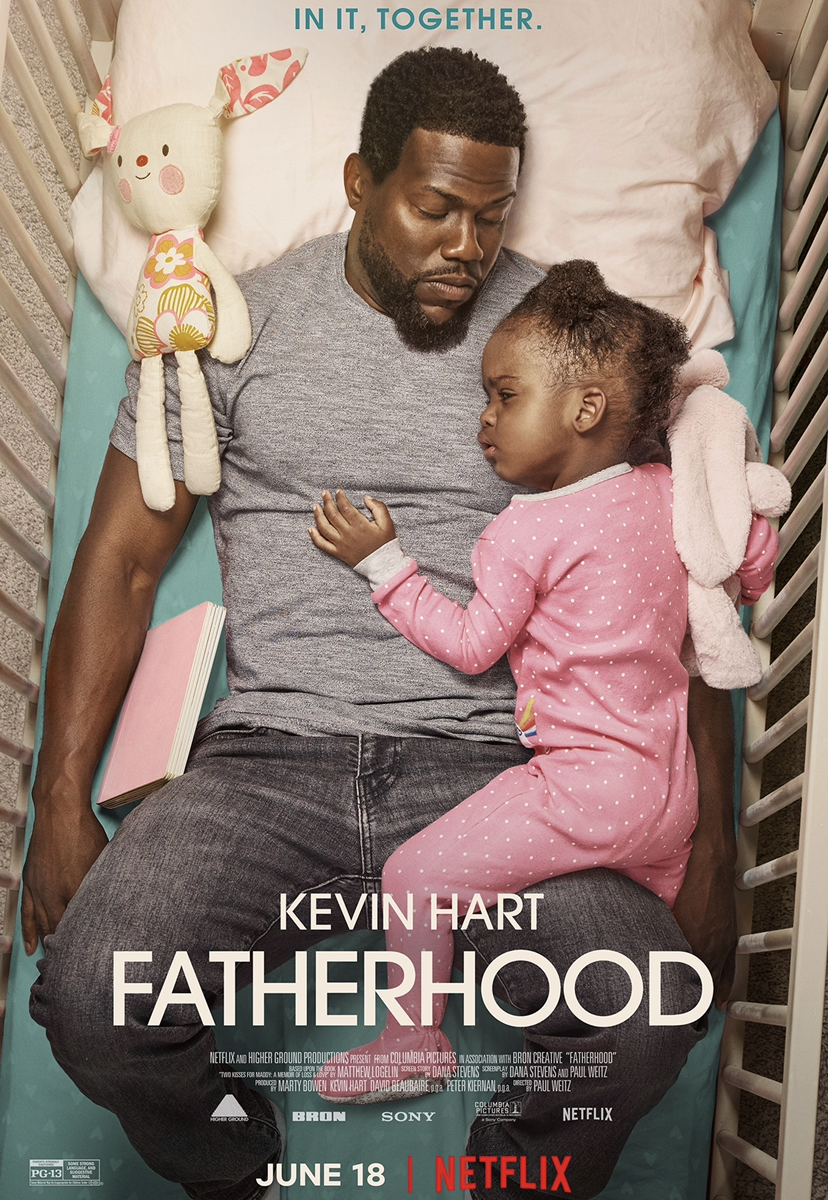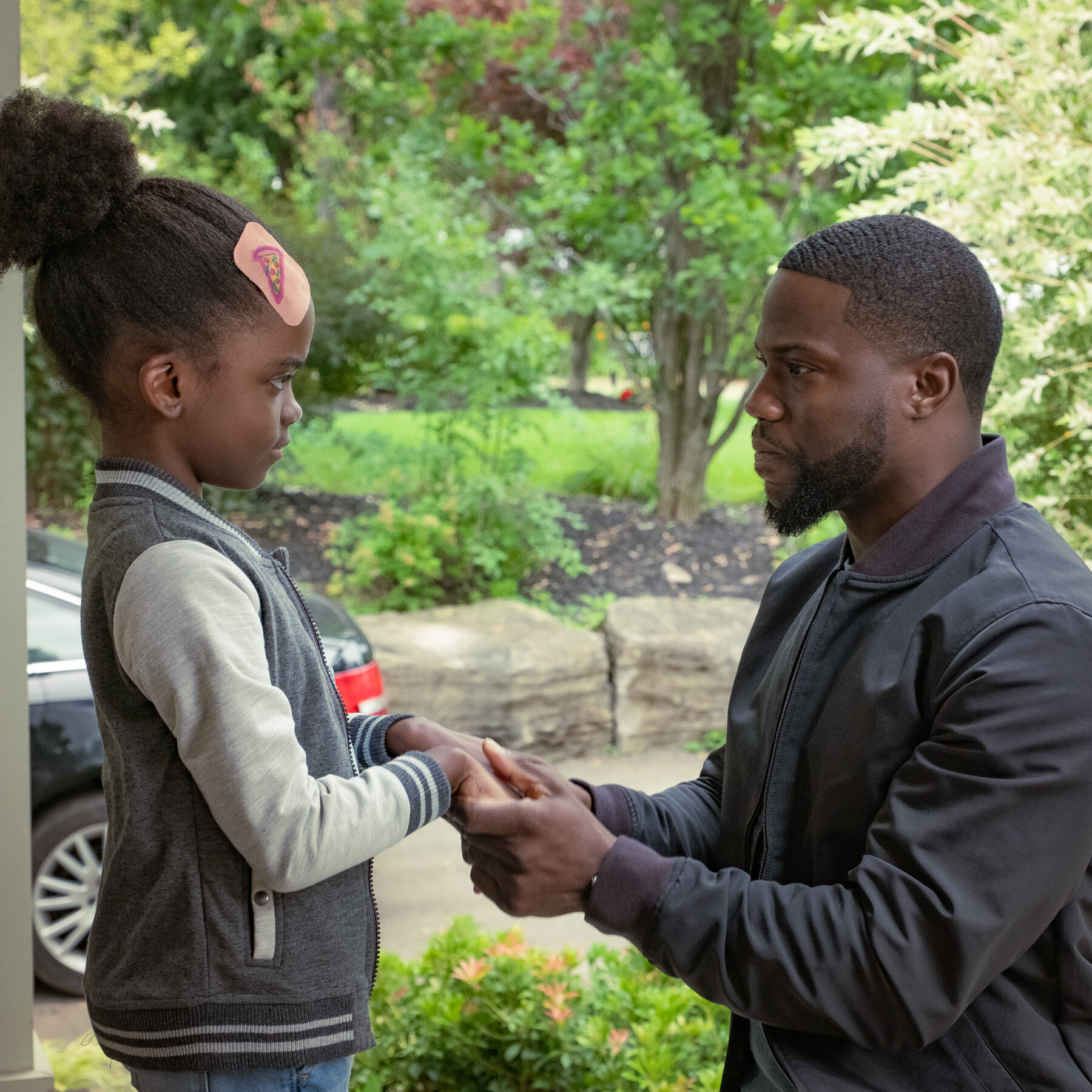‘Little Boxes’ Had Good Intentions, But...
In 'Little Boxes," an interracial family moves to an all-white town where they face the judgement of others who have never been exposed to people of color before.


In ‘Fatherhood’(2021) we follow Matthew Logelin (Kevin Hart) in the aftermath of the passing of his wife, Liz, (Deborah Ayorinde). While coming to terms with this major life change, he must adapt to another: being a single parent to their daughter Maddy (Melody Hurd).
(Spoiler warning for major plot lines and ending.)

The first thing I’ll say about ‘Fatherhood’ is to prepare a tissue box for viewing. The plot has very emotional story beats that hit the viewer with feelings right from the first few minutes in. Going into the movie, it’s no secret that Liz dies, as it’s in the synopsis of the film. Even with this information in mind, her death is still impactful. We get spliced scenes of Matthew at his wife’s funeral mixed in with flashbacks to show what led up to that point. Liz isn’t on screen for very long as her death is the catalyst to the rest of the film’s events. What time she does have to interact with Matt is incredibly sweet. In a matter of a few scenes, a strong connection is established with the couple. An especially touching moment is when Matt gifts his wife a necklace in the hospital, which will later become a motif in the narrative. Building connections between characters can be a hurdle for any story to accomplish. Countless other works will kill a character off without building sentimentality for them, thus there is no sentimental reaction in their death. Not in Fatherhood though. I found myself brought to tears in the moments of Maddy’s birth and the gut-punch of Liz’s passing that followed. The actors play the emotions so realistically. Kevin Hart and Deborah Ayorinde genuinely feel like they’re in love in the tender scenes they share. This realism extends to all of the actors/actresses in ‘Fatherhood’ as they have seamless performances that never miss a beat. They all have a tremendous amount of chemistry with one another. I will say I had only seen Kevin Hart’s more playful films such as the Jumanji reboot, Central Intelligence, Get Hard, etc. playing lighthearted roles. This being so, his performance in ‘Fatherhood’ left quite an impression on me. I hadn’t realized how capable Hart is of acting in more serious, emotional scenes. I am especially impressed with Melody Hurd, the eldest actress for Maddy. Child actors have a notorious reputation for being an element that makes or breaks a film, (not to their fault, mind you; it can be hard for adults to act well – let alone children) yet Melody acts flawlessly! She conveys an impressive amount of passion for such a young actress.

I was surprised by how little comedy there is in ‘Fatherhood’, though that isn’t to say it’s devoid of humor. There are jokes sprinkled throughout the film that are a needed break from the more sentimental, sadder moments. However, for the most part, the story is played relatively straight. An example of its realism that comes to mind is the character of Marion (Alfre Woodard), the mother of Liz, and Maddy’s grandmother. When she was initially introduced, I was expecting her to be painted in a somewhat negative light. There’s always that old trope of the wicked stepmother/mother-in-law who deems something or other unorthodox and swoops in to intervene. Marion does make a deal with Matt, as she’s wary of his ability to care for Maddy on his own, but in a completely reasonable manner, telling Matthew he should move back to Minnesota with the rest of the family if he’s having trouble raising Maddy. When he asks why he would agree to the condition, Marion informs Matt that it’s not about him. This is all for her granddaughters’ benefit, and there isn’t a hint of malicious intent or selfishness which could’ve been all too easy to paint her with.
Another element of ‘Fatherhood’ I admire is how subtly it presents progressive notions on gender roles. As soon as Matthew becomes a single parent, left and right – those around him doubt that he can handle raising Maddy on his own. This criticism comes from his friends, boss, and family. He frequently pushes back against their lack of faith, asserting that although it will be difficult, he is perfectly capable. A few notable moments are when Matt speaks with his higher-up at work. When he alludes to questioning his capability, Matthew shoots back by asking, “What is it that a woman has that a man doesn’t?” In another scene, Matt goes to a support group for parents while he’s struggling, and the women there initially turned him away by saying it’s a support group for new “mothers”. Matt challenges them saying, “You’re lying, because on that sign up there, it says ‘parents.’” They then counsel him. It’s wonderful to see positive depictions of fatherhood (especially a black father to combat the rampant stereotype that they’re absent from their children’s lives) as it’s true to reality how men can be dismissed as not being as adequate caregivers as women. In turn, that notion reinforces the arbitrary gender binary. Time and time again Matthew shows his determination to be a good father and follows through on it, being immensely supportive of Maddy.
To further elaborate on the way the film handles gender expression, Matthew is very encouraging of his daughter’s clothing choices. He lets her wear pants to her Catholic school. This detail may not seem that special as society has accepted women wearing trousers for the past century, but beyond that he’s even ok with her wearing boy’s underwear! I respected that of his character, as it’s not unheard of for parents to get bent out of shape if their child shows interest in things that are typically geared towards the opposite sex. They may become insecure and ignorantly fear it to be an early “sign” of queerness and promptly shame them out of that interest, but not Matt. At a later point in the story when a nun tries to discuss with Matthew Maddy’s dress code violations and asks, “What if a boy wanted to come to school dressed in a skirt?”. This prompts Matthew to answer, “Then that’s that boy’s business, it’s the 21st-century.” In a touching after-credit scene, Matt even drops Maddy off at school with her wearing pants and him wearing a skirt! That has to be the most wholesome supportive parent moment I’ve seen in a film, period! This parent-child dynamic gave me a similar feel to that of the character Juan from Moonlight, another fantastic portrayal of a supportive father role played by a black actor that tackles subjects outside of heteronormativity. We should encourage more roles such as these to become common in television and film!
I would give ‘Fatherhood’ a 5/5 Incluvie score! The film has a stellar representation of a black single father, as they rarely are portrayed in media. Especially in a positive light. While there aren’t any prominent LGBTQ+ figures shown, there are great themes of gender expression outside of typical binary roles.
In total, I give ‘Fatherhood’ a 5/5 for a movie overall! It’s a work crafted with a lot of love, time, and effort from everyone who worked on the project. I would highly recommend it to anyone who has yet to see it!
Related lists created by the same author
In 'Little Boxes," an interracial family moves to an all-white town where they face the judgement of others who have never been exposed to people of color before.
Related Movie / TV / List / Topic
This Halloween movie is based on the toy line of the same name.